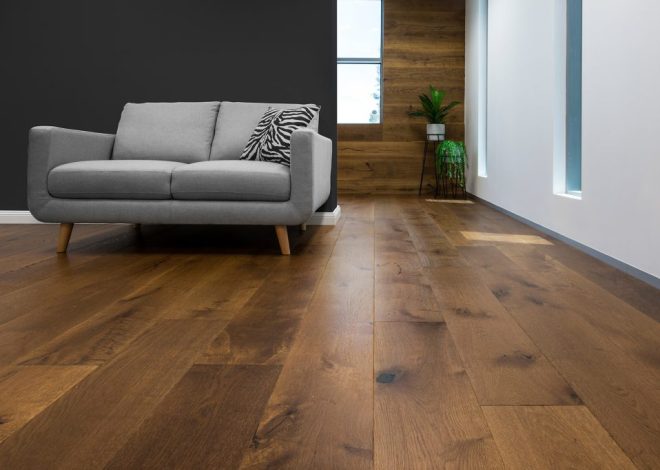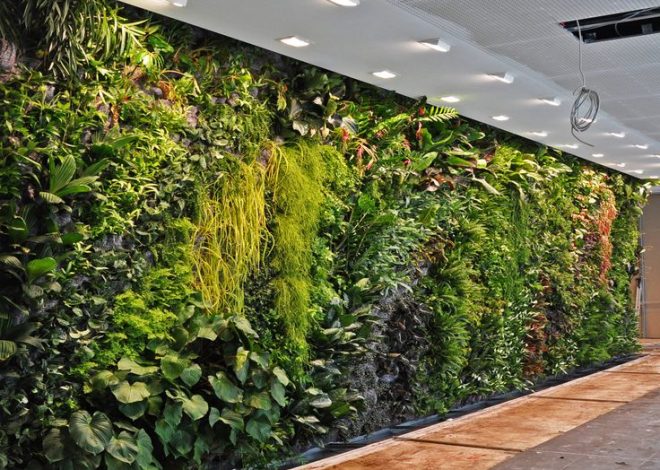Transform Your Home with Durable and Stylish Concrete Driveway Pavers
Introduction
When it comes to enhancing the curb appeal and functionality of your home, the driveway is a critical element. A well-designed driveway not only provides a smooth surface for vehicles but also boosts the aesthetic value of your property. Concrete driveway pavers have emerged as a popular choice for homeowners looking to upgrade their driveways. But why should you consider them? Let’s dive into the world of concrete pavers and explore their numerous benefits and installation process.
Benefits of Concrete Driveway Pavers
Concrete pavers offer several advantages that make them an excellent choice for driveways:
Durability and Longevity
Concrete pavers are known for their durability. They can withstand heavy loads and adverse weather conditions, ensuring that your driveway remains intact for years. Unlike traditional concrete slabs, pavers are less prone to cracking because they can flex slightly under pressure.
Aesthetic Appeal
Available in a variety of shapes, sizes, and colors, concrete pavers provide endless design possibilities. Whether you prefer a classic look or a modern aesthetic, you can find pavers that match your vision. They can mimic the appearance of brick, stone, or even wood, adding a unique touch to your driveway.
Versatility in Design
From herringbone to basket weave patterns, concrete pavers can be arranged in various designs to create a visually appealing driveway. This versatility allows homeowners to personalize their space and complement the architectural style of their home.
Easy Maintenance
Maintaining a concrete paver driveway is relatively simple. Individual pavers can be replaced if they get damaged, and regular cleaning can keep them looking new. Additionally, sealing the pavers helps to protect them from stains and weather damage.
Types of Concrete Pavers
There are several types of concrete pavers to choose from, each with its unique characteristics:
Interlocking Pavers
These pavers fit together like pieces of a puzzle, creating a strong and stable surface. They are designed to resist shifting and settling, making them ideal for driveways.
Architectural Slabs
These are larger, thinner pavers that offer a sleek, contemporary look. While they are not as strong as interlocking pavers, they are perfect for light-traffic areas.
Permeable Pavers
Designed to allow water to pass through, permeable pavers help reduce runoff and promote groundwater recharge. They are an environmentally friendly option for driveways.
Choosing the Right Concrete Pavers
Selecting the right pavers involves considering several factors:
Considering Climate and Weather Conditions
If you live in an area with extreme temperatures or heavy rainfall, choose pavers that can withstand these conditions. For instance, permeable pavers are excellent for areas prone to flooding.
Matching Pavers with Home Style
Ensure that the pavers you choose complement the architectural style of your home. For a traditional look, consider brick-like pavers, while sleek, modern homes might benefit from smooth, geometric designs.
Budget Considerations
Concrete pavers come in a range of prices. Determine your budget beforehand and choose pavers that offer the best balance between cost and quality.
Installation Process
Installing concrete driveway pavers involves several steps:
Planning and Design
Start by sketching out your driveway design. Consider the pattern, color, and shape of the pavers you want to use. This step is crucial to ensure a smooth installation process.
Site Preparation
Clear the area of any existing driveway material, vegetation, or debris. Proper site preparation is essential for a stable base.
Laying the Base
A solid base is crucial for the longevity of your driveway. Lay a layer of gravel or crushed stone, and compact it thoroughly to create a stable foundation.
Placing the Pavers
Begin laying the pavers according to your design. Use spacers to maintain consistent gaps between the pavers, and check frequently to ensure they are level.
Finishing Touches
Fill the gaps between the pavers with sand or polymeric sand. This helps lock the pavers in place and prevents weeds from growing between them. Finally, seal the pavers to protect them from stains and weather damage.
DIY vs. Professional Installation
Deciding whether to install concrete pavers yourself or hire a professional depends on your skills and the complexity of the project:
Pros and Cons of DIY Installation
DIY installation can save you money and give you a sense of accomplishment. However, it requires a significant amount of time, effort, and some level of expertise. Mistakes during installation can lead to costly repairs.
Benefits of Hiring a Professional
A professional installer brings experience and efficiency to the project. They have the tools and knowledge to ensure a high-quality installation, saving you time and potential headaches.
Cost of Concrete Driveway Pavers
Understanding the costs involved can help you budget for your new driveway:
Material Costs
The cost of pavers varies based on their type, size, and design. On average, expect to pay between $2 to $15 per square foot.
Installation Costs
Professional installation typically ranges from $10 to $20 per square foot, depending on the complexity of the job and the region.
Long-term Cost Efficiency
While the initial cost of concrete pavers may be higher than other materials, their durability and low maintenance make them a cost-effective choice in the long run.
Maintenance Tips
Keeping your concrete paver driveway in top shape is easy with these tips:
Regular Cleaning
Sweep your driveway regularly to remove dirt and debris. Use a pressure washer for a deeper clean, but avoid using high pressure directly on the pavers as it can damage the surface.
Sealing Pavers
Seal your pavers every few years to protect them from stains and weather damage. Sealing also enhances the color and appearance of the pavers.
Weed and Moss Control
Apply weed killer to prevent weeds from growing between the pavers. For moss, a mixture of water and vinegar can be effective.
Repairing Damaged Pavers
If a paver gets damaged, simply remove it and replace it with a new one. This is one of the significant advantages of using pavers over traditional concrete slabs.
Enhancing Your Driveway with Concrete Pavers
Concrete pavers offer numerous opportunities for customization:
Adding Borders and Edging
Borders and edging can enhance the appearance of your driveway and keep the pavers in place. Choose contrasting colors or designs to make your driveway stand out.
Incorporating Lighting
Install landscape lighting along the edges of your driveway to improve visibility and add a touch of elegance.
Landscaping Around the Driveway
Planting flowers, shrubs, or trees around your driveway can create a beautiful transition from the driveway to the rest of your landscape.
Comparing Concrete Pavers to Other Driveway Materials
Consider how concrete pavers stack up against other common materials:
Concrete vs. Asphalt
While asphalt is cheaper initially, it requires more maintenance and has a shorter lifespan compared to concrete pavers.
Concrete vs. Gravel
Gravel driveways are inexpensive and easy to install but can be messy and require frequent maintenance. Concrete pavers offer a cleaner, more durable solution.
Concrete vs. Brick
Brick driveways have a classic look but can be more expensive and less durable than concrete pavers.
Environmental Impact of Concrete Pavers
Concrete pavers can be an eco-friendly choice:
Sustainability of Materials
Many concrete pavers are made from recycled materials, reducing their environmental impact.
Permeable Paver Options
Permeable pavers allow water to infiltrate the ground, reducing runoff and helping to prevent flooding.
Reducing Urban Heat Island Effect
Concrete pavers can help mitigate the urban heat island effect by reflecting more sunlight than asphalt.
Common Mistakes to Avoid
Avoid these pitfalls to ensure a successful installation:
Skipping the Base Preparation
A poorly prepared base can lead to paver shifting and settling. Take the time to prepare the base properly.
Improper Spacing and Alignment
Ensure consistent spacing and alignment to avoid an uneven appearance and potential tripping hazards.
Neglecting Maintenance
Regular maintenance is crucial to keep your driveway looking its best and prolong its lifespan.
Success Stories and Case Studies
Draw inspiration from these examples:
Residential Driveway Transformations
Many homeowners have transformed their curb appeal with concrete pavers. Their stories highlight the benefits and versatility of this material.
Commercial Driveway Installations
Businesses have also adopted concrete pavers for their durability and professional appearance.
FAQs About Concrete Driveway Pavers
How Long Do Concrete Pavers Last?
With proper maintenance, concrete pavers can last up to 25-50 years.
Are Concrete Pavers Better Than Asphalt?
Concrete pavers are more durable, aesthetically pleasing, and require less maintenance than asphalt.
Can I Install Concrete Pavers Myself?
Yes, but it requires time, effort, and some level of expertise. Hiring a professional is recommended for complex projects.
How Do I Prevent Weeds Between Pavers?
Regularly apply weed killer and use polymeric sand between the pavers to inhibit weed growth.
What Are the Best Practices for Cleaning Concrete Pavers?
Sweep regularly, use a pressure washer for deep cleaning, and reseal every few years to maintain their appearance.
Conclusion
Concrete driveway pavers offer a durable, versatile, and aesthetically pleasing solution for enhancing your home’s curb appeal. By understanding the benefits, types, installation process, and maintenance tips, you can make an informed decision and enjoy a beautiful, long-lasting driveway. Whether you choose to tackle the project yourself or hire a professional, concrete pavers are a worthwhile investment that can transform your property’s look and functionality.



